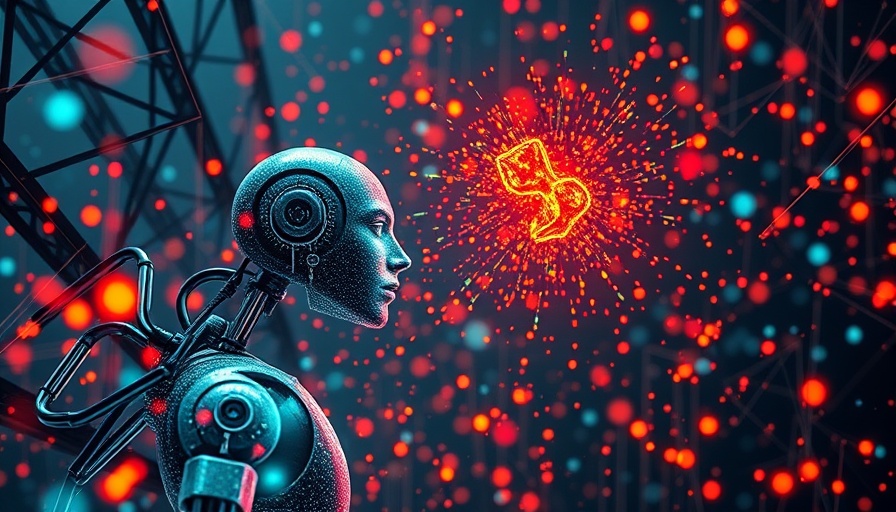
The Battle Between AI and Copyright: What’s at Stake?
As we stand at the crossroads of technology and creativity, the recent legal victories for AI companies against copyright claims raise important questions about the future of content creation. Anthropic’s success in not violating copyright law by using books to train their AI chatbot, and Meta’s favorable ruling reflect a shifting landscape in how we perceive the intersection of artificial intelligence and intellectual property.
Understanding the Legal Landscape of AI Copyright
In a significant ruling, Judge Alsup likened Anthropic's actions to those of a reader aspiring to be a writer, effectively normalizing the use of copyrighted material for AI training. This perspective challenges traditional notions of copyright infringement, as it opens the door for AI to use existing works as foundational elements in generating new content. With Meta also emerging victorious, it sets a precedent that could embolden tech companies in their legal battles over copyright.
The Implications for Creative Professionals
Creative professionals are understandably concerned about how these rulings may affect their livelihoods. The ongoing cases against entities like Midjourney and those entwined in the music industry signal that while AI tools are gaining ground, their relationship with copyright law remains complicated and evolving. Significant pressure could be placed on artists and writers as AI-generated content continues to interlace with their original works, leaving them feeling vulnerable.
What Lies Ahead: AI's Role in Creative Industries
Looking forward, one can’t help but wonder how these legal decisions will shape the future of creative expression. With technology continuing to advance, will we see a clear definition of how copyright laws apply to AI-generated content? As John Strand points out, the medium in question—be it written, visual, or auditory—will influence the fair-use analysis, indicating that not all media may benefit equally from these rulings.
What You Need to Know: The Fundamentals of AI
For those starting their journey in technology, understanding AI basics is crucial. Resources explaining AI concepts in layman’s terms make the vast field of AI accessible to newcomers. Engaging in AI programming begins with grasping its principles, which can empower users and creators alike to navigate this changing landscape. Engaging with AI education, from tutorials to case studies, can provide important insights into the industry's trajectory and encourage responsible use of technology.
The discourse surrounding AI and copyright isn’t merely an academic issue; it’s a significant conversation about creativity, innovation, and the future of work. As AI continues to permeate various sectors, including marketing, content creation, and beyond, understanding these developments is vital for professionals seeking to harness the potential of AI ethically and effectively.
 Add Row
Add Row  Add
Add 




 Add Row
Add Row  Add
Add 



Write A Comment